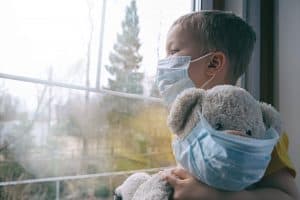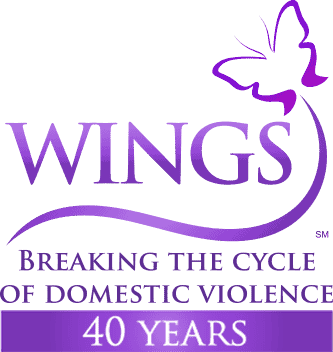WINGS Launches Innovative Survivor Lifeline Mentoring Program
- Posted by Sarah Swiston
- On January 19, 2022
- Chicago, chicago metropolitan area, Chicago suburbs, COVID-19, Domestic Violence, domestic violence agency, domestic violence organization, DV agency, End Domestic Violence, Housing Programs, mentoring, mentoring program, non-profit, northwest chicago, Pandemic, Survivor Lifeline, WINGS, WINGS Program
Spring 2021, WINGS launched its innovative Survivor Lifeline Mentoring Program. Read more to learn about how this program came to be, how it changes lives and how you can make a difference.
For over 20 years, WINGS has been providing mentoring for Housing Program graduates (Project Lifeline) and for Latinx survivors (ALAS Program). An expansion of these mentoring programs, Survivor Lifeline matches culturally compatible survivor mentors with survivors moving into housing programs throughout the Chicago region.
“WINGS graduates have come forward to serve in our other mentoring programs. Some would visit WINGS Safe Houses and speak to newly arrived survivors. Their words would provide inspiration and hope.
Feedback from these engagements proved that survivors were benefitting from having a mentor who had lived similar experiences. Volunteer mentors provide experience, strength and hope as they have previously ‘walked in their shoes,’ and the concept for Survivor Lifeline was created,” April Brayton-Flores, WINGS Director of Community Based Services and the Suburban Safe House shares.
Survivor Lifeline mentors have shared life experience and connect survivors to community resources. These mentors can provide everything from resume support to budgeting assistance to empathetic encouragement and more.
Mentors and mentees meet virtually, or safely in person depending on the comfort level of the program participants. The frequency of meetings depends on the mentee’s preferences and the mentor’s availability.
Increased Need
 Research has shown that major events such as health pandemics, natural disasters and recessions result in an increase in domestic violence, even after the immediate crisis has ended.
Research has shown that major events such as health pandemics, natural disasters and recessions result in an increase in domestic violence, even after the immediate crisis has ended.
Calls, and increasingly texts, to the Illinois Domestic Violence Hotline continue to surge. According to a 2020 Annual Report from the Network Advocating Against Domestic Violence there were 109 days with no shelter beds in Chicago.
Rapid Rehousing
Throughout the pandemic, WINGS has sought additional ways to meet the increased need for domestic violence shelters. In collaboration with Apna Ghar, WINGS received 100 Rapid Rehousing units citywide. Survivors moving in have a case manager, but these staff often have high caseloads.
Once WINGS had secured the Rapid Rehousing units, the agency knew that launching Survivor Lifeline would be ideal. With survivors moving quickly from shelters into housing, it would be likely that many survivors would need additional emotional support to move toward long-term safety and stability.
An additional impact of Rapid Rehousing and Survivor Lifeline is that the housing programs will free up the limited number of domestic violence shelter beds more swiftly, which are in even higher demand during this COVID-19 crisis.
Survivor Lifeline mentors assist Rapid Rehousing clients in maintaining their housing. Forming a connection to a mentor with shared experiences, clients are linked to resources and supported in their career aspirations.
Goals
 WINGS anticipates 90% of Survivor Lifeline clients will maintain their housing over a year and 80% over two years. Since the program began Spring 2021, of the 22 mentees paired with survivor mentors in the program, 100% have maintained housing.
WINGS anticipates 90% of Survivor Lifeline clients will maintain their housing over a year and 80% over two years. Since the program began Spring 2021, of the 22 mentees paired with survivor mentors in the program, 100% have maintained housing.
Other outcomes of the program include assisting clients obtain, maintain and ultimately increase their income. Although a new program, one mentee has gone from not having any income to obtaining full-time employment.
The long-term support that Survivor Lifeline provides empowers clients to live free from abuse. This directly translates into a better quality of life for survivors, their children and an overall safer community.
Ultimately, WINGS would like to scale the program to be offered to any survivor moving into housing from any domestic violence shelter.
“My Mentor has Gone Above and Beyond to Assist Me…”
Mentee Valerie* was not sure about receiving support from WINGS Survivor Lifeline Mentoring program.
“I had a lot going…I didn’t know how I could handle it all,” Valerie shares.
However, she ultimately agreed to try the program out. WINGS Survivor Lifeline Coordinator paired her with someone who was culturally and spiritually compatible with her identity.
“I’m so thankful for the program. My mentor has gone above and beyond to assist me.
From helping me with little problems to just listening and having a conversation…She has helped me see the positive in life.
She’s given me advice and shared her mantra with me, ‘Never let anything get in the way.’ I think about this when I’ve had a hard day. To me, it affirms that my goals matter and to make them a priority.”
Are You a Survivor Looking to Give Back?
 WINGS is recruiting Survivor Lifeline Mentors to help more quickly scale the program.
WINGS is recruiting Survivor Lifeline Mentors to help more quickly scale the program.
If you are a survivor and enjoying helping others, becoming a Survivor Lifeline Mentor might be a great opportunity.
This volunteer opportunity is flexible and can range from two to five hours a month based on a mutually convenient time.
Qualifications
- You are a survivor of Intimate Partner Violence.
- You want to use your time and abilities to be a part of the journey to end domestic violence and empower survivors.
- You have good communication skills and enjoy speaking with others.
- You feel comfortable working with people in a diverse environment in regards to social-economic status, race, ethnicity, sexual orientation, and religion.
- You are compassionate.
- You have strong personal boundaries.
Training
- SLL mentors must attend WINGS Program 40-hr DV training.
- The Survivor Life Line Coordinator will provide SLL mentors specific trainings such as: emergency assistance, crisis intervention, setting goals, diversity and inclusion, advocacy vs. counseling, safety planning and documentation.
If you are interested in becoming a mentor or learning about other WINGS volunteer opportunities: Click Here.
Thank You!
WINGS received the initial funding from the Cindy Bischof Memorial Fund to officially launch the Survivor Lifeline mentoring pilot program. Significant additional funding was provided by BMO and the Adtalem Global Education Foundation.
The Survivor Lifeline mentoring program is one of Cindy’s legacies. The other being legislation to allow judges to require GPS monitoring bracelets, which Cindy advocated for before her life was ended by her ex-boyfriend. Now 22 states have passed this legislation.
WINGS is grateful for long-term partnerships we have with BMO and Adtalem Global Education Foundation who have also made this vision a reality.
If you are interested in supporting WINGS or the Survivor Lifeline program, make a donation here:
*WINGS uses representative names and photos to protect the dignity and security of those we serve.


0 Comments